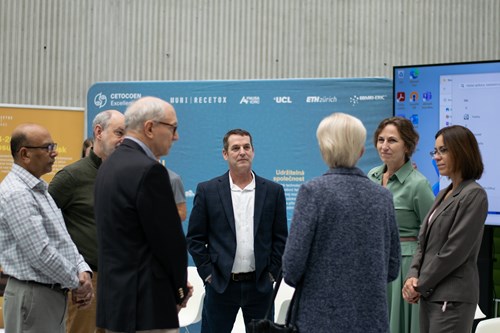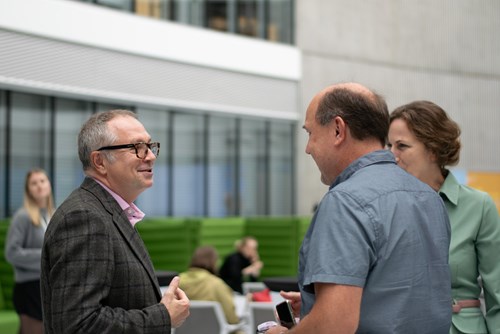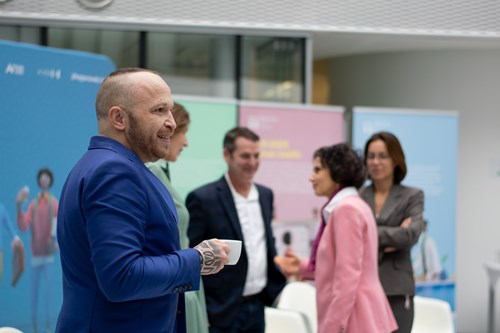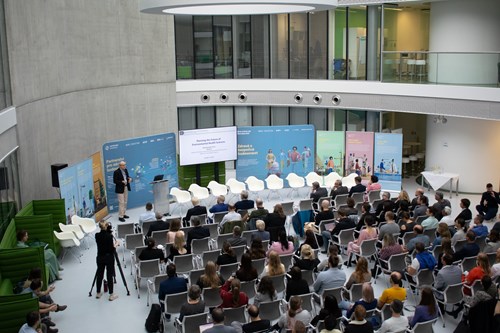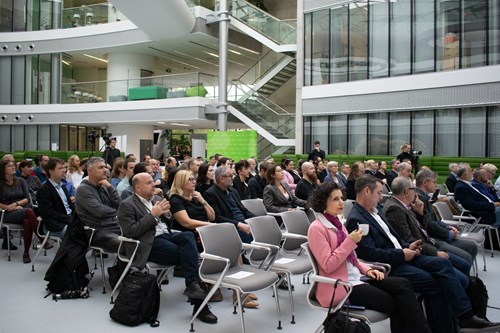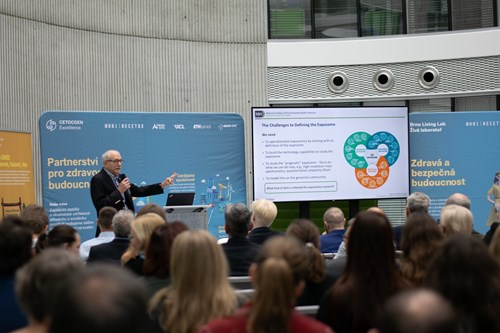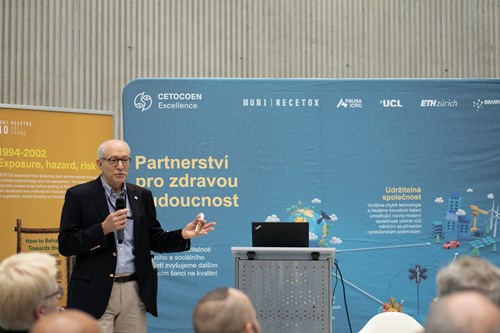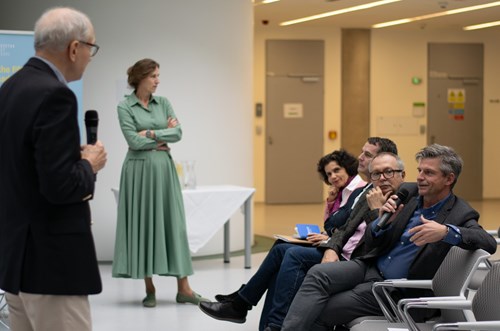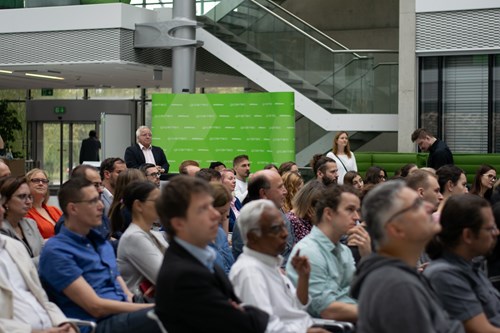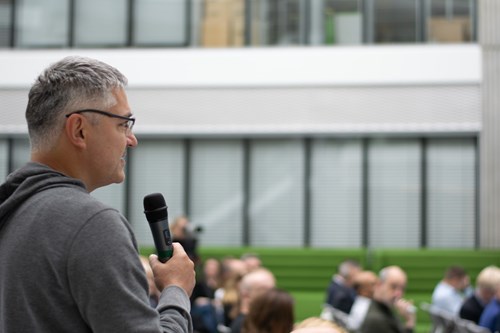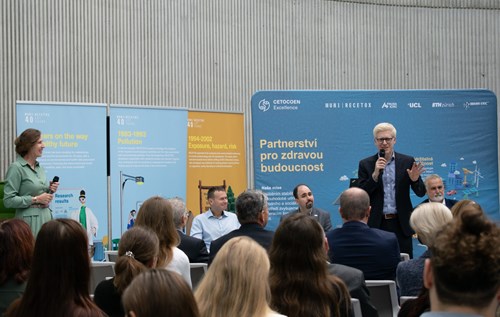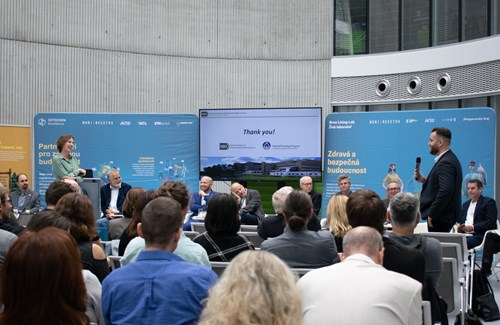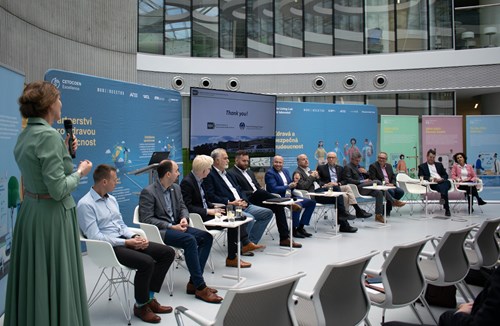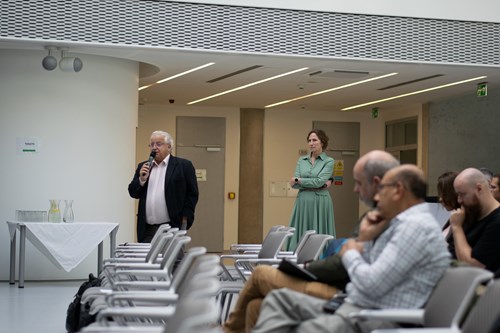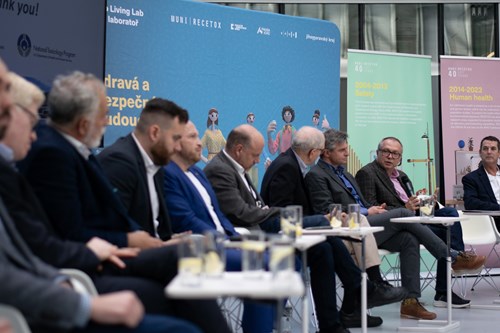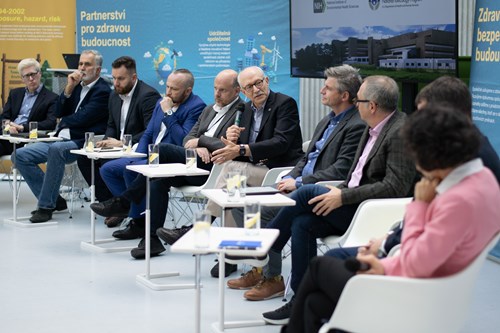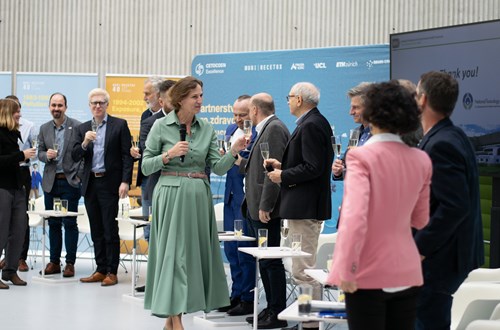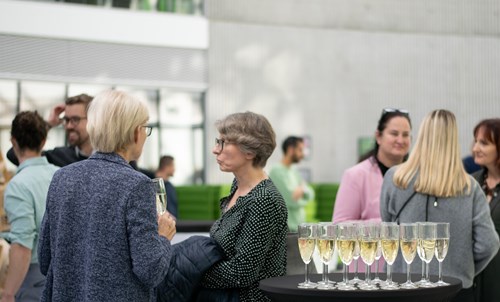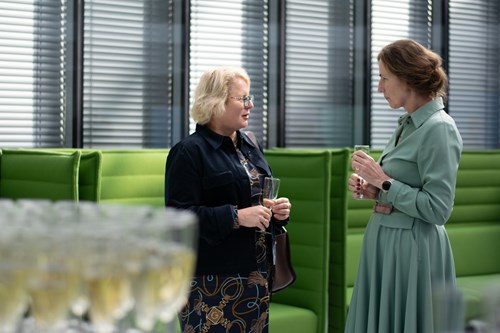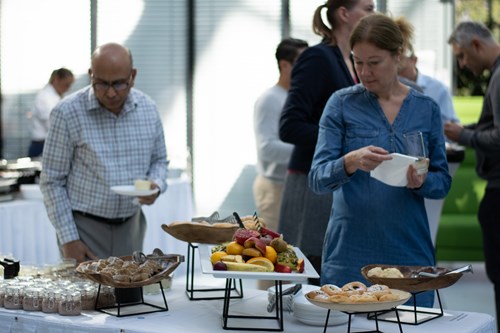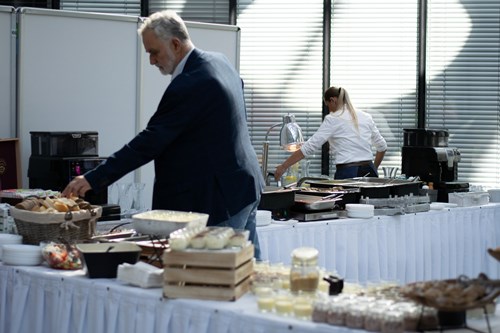Richard first introduced the concept of the exposome, its history, and the strategic plan that NIEHS has developed over the past year, aiming to transform the approach to health research to emphasize the influence of the exposome. He highlighted the importance of international collaboration and described how environmental studies and their impact on human health are conducted at NIEHS, including the six research areas the institute focuses on.
Woychik also outlined the current challenges that the exposome and the development of infrastructure for its research present, such as the development of new technologies or the collection and handling of large amounts of data necessary for such complex research. Lastly, he introduced Gary Miller, Professor of Environmental Health Sciences at Columbia University, who leads the NEXUS Coordinating Center for exposome research in the United States.
This was followed by a round table discussion with representatives from Czech ministries and various international institutions. Among the panelists were Zsófia Pusztai, Head of the WHO Office in the Czech Republic, Radislav Sedláček, Director of the Czech Centre for Phenogenomics, Ondřej Májek, Head of the International Relations Department at the Institute of Health Information and Statistics of the Czech Republic (ÚZIS), Pavel Doleček, Deputy Minister for Science, Research and Innovation, and Václav Velčovský, Chief Director of the International Relations, EU and ESIF Section at the Ministry of Education, Youth and Sports.


